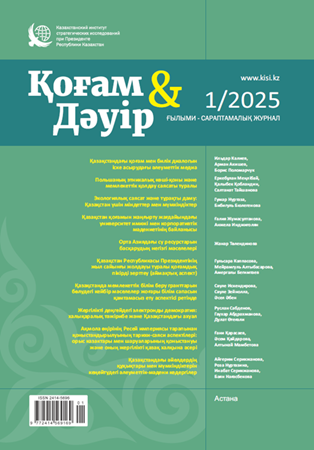Abstract
Higher education in Kazakhstan is a relevant research topic, as it plays a key role in the development of the country’s human capital. The main objective of this study is to assess the accessibility of higher education and develop recommendations for improving the funding system, taking into account labor market needs. The research focuses on financial aspects of educational accessibility, including the state grant system and university funding mechanisms.
The scientific significance of this work lies in the analysis of the existing educational grant system in Kazakhstan and its impact on the accessibility of higher education for students from various social groups. The research methodology includes economic-statistical and abstract-logical methods to analyze data on student financial support and state educational orders.
The study reveals both the positive aspects of the per capita funding system for universities and its limitations, such as the concentration of resources in major universities and possible declines in educational accessibility in certain regions. Study data confirm the need for more precise planning of educational grants in accordance with labor market demands.
The practical significance of the work lies in its proposals for enhancing the higher education funding system in Kazakhstan, which will ensure equal access to education and improve its quality. The study’s contribution is well-founded recommendations for creating a more balanced system focused on training professionals needed under contemporary conditions.

This work is licensed under a Creative Commons Attribution 4.0 International License.
Copyright (c) 2025 ҚОҒАМ ЖӘНЕ ДӘУІР


